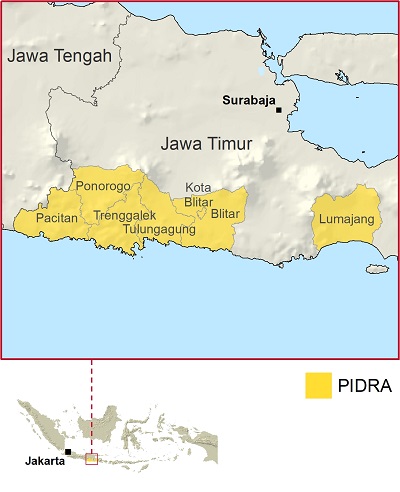Post-Crisis Programme for Participatory Integrated Development in Rainfed Areas
IFAD Asset Request Portlet
Publicador de contenidos
Post-Crisis Programme for Participatory Integrated Development in Rainfed Areas
The objectives of the programme are to improve the income, food security and living conditions of low-income households and to promote the conservation and improvement of natural resources. Local NGOs are helping to develop self-help groups within the communities. In addition, the programme introduces integrated nutrient management to help farmers make the best use of organic and inorganic fertilizers. Investments in soil conservation promote development of the most appropriate systems for diverse environments. The self-help groups establish the priority of activities to be undertaken and are responsible for monitoring performance.
The programme works in four major areas:
- community and gender development The objective is to establish about 5,000 self-help groups that include the poorest of the poor –landless people, agricultural labourers, stonebreakers, abandoned women and widows and others living below the poverty line
- agriculture and livestock development To support farmers' own strengths and initiatives, the programme offers a wide range of training courses and services according to the priorities expressed by self-help groups
- village infrastructure and land management The programme establishes Village Infrastructure Development Associations to procure, manage, monitor, supervise and maintain village infrastructure works. The associations are composed of representatives of self-help groups and village institutions. Watershed Management Associations are also being set up to increase productivity in an equitable way. The associations are composed of landowners and landless people working or living within a micro-watershed
- institutional support and programme management The programme requires the services of professional and administrative managers of the government at all levels. Managers are equipped with the systems and tools and training to collect, compile and analyse essential information on the programme's performance.

Informes del Presidente
Informes sobre el diseño de los proyectos
Documentos de supervisión y apoyo a la ejecución
Evaluación del impacto ambiental y social
Auditoría y Estados Financieros
Informe del examen interino (mitad de período)
Marco de acción para el reasentamiento
Resúmenes de informes
Resúmenes de informes
Project Completion Report Digest
Año: 2011